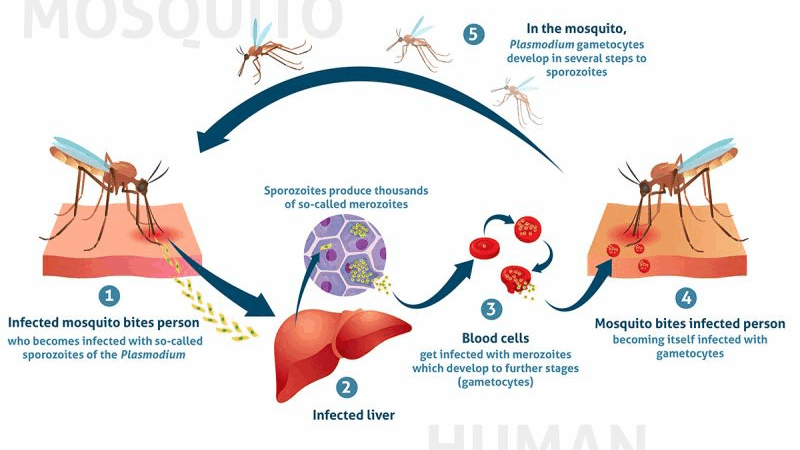
Malaria is a potentially fatal infectious disease transmitted to humans by the bites of certain species of mosquito. It occurs mainly in tropical countries. It is a preventable and curable disease.
The infection is caused by a parasite Plasmodium and is not transmitted from person to person.
Symptoms can be mild or life-threatening. Mild symptoms include fever, chills and headaches. Severe symptoms include fatigue, confusion, convulsions and difficulty breathing.
Infants, children under five, pregnant women and girls, travelers and people living with HIV or AIDS are at greater risk of severe infection.
Malaria can be prevented by avoiding mosquito bites and taking medication. Treatment can prevent mild cases from worsening.
Malaria is spread to humans mainly by the bite of certain infected female Anopheles mosquitoes. Malaria can also be transmitted through blood transfusions and contaminated needles. Initial symptoms may be mild, similar to those of many febrile illnesses, and difficult to recognize. If left untreated, malaria can develop into a serious, even fatal, illness within 24 hours.
Of the five species of Plasmodium parasites responsible for malaria in humans, P. falciparum and P. vivax are the most dangerous. P. falciparum is the most deadly and widespread parasite on the African continent, while P. vivax is the dominant species in most countries outside sub-Saharan Africa. Other species that can infect humans are P. malariae, P. ovale and P. knowlesi.
A few figures
– In 2023, there will be an estimated 263 million cases of malaria and 597,000 malaria-related deaths in 83 countries. 94% of malaria cases (246 million) and 95% of malaria deaths (569,000) were recorded in the African region, and children under five accounted for some 76% of malaria deaths in the Region.
– In 2023, global investment in the fight against malaria amounted to around $4 billion, less than half of the $8.3 billion target set by the WHO in its Global Technical Strategy against Malaria.
– Malaria is recognized as a major brake on development, particularly in African countries where it affects labor productivity, school learning and the stability of health systems.
– Since 2000, malaria control efforts have prevented some 2.2 billion cases and 12.7 million deaths, demonstrating the enormous potential return on investment.
Visit: https://www.linkedin.com/company/gotesse/posts/?feedView=all&viewAsMember=true
picture, from https://lnkd.in/eN2quMG9
